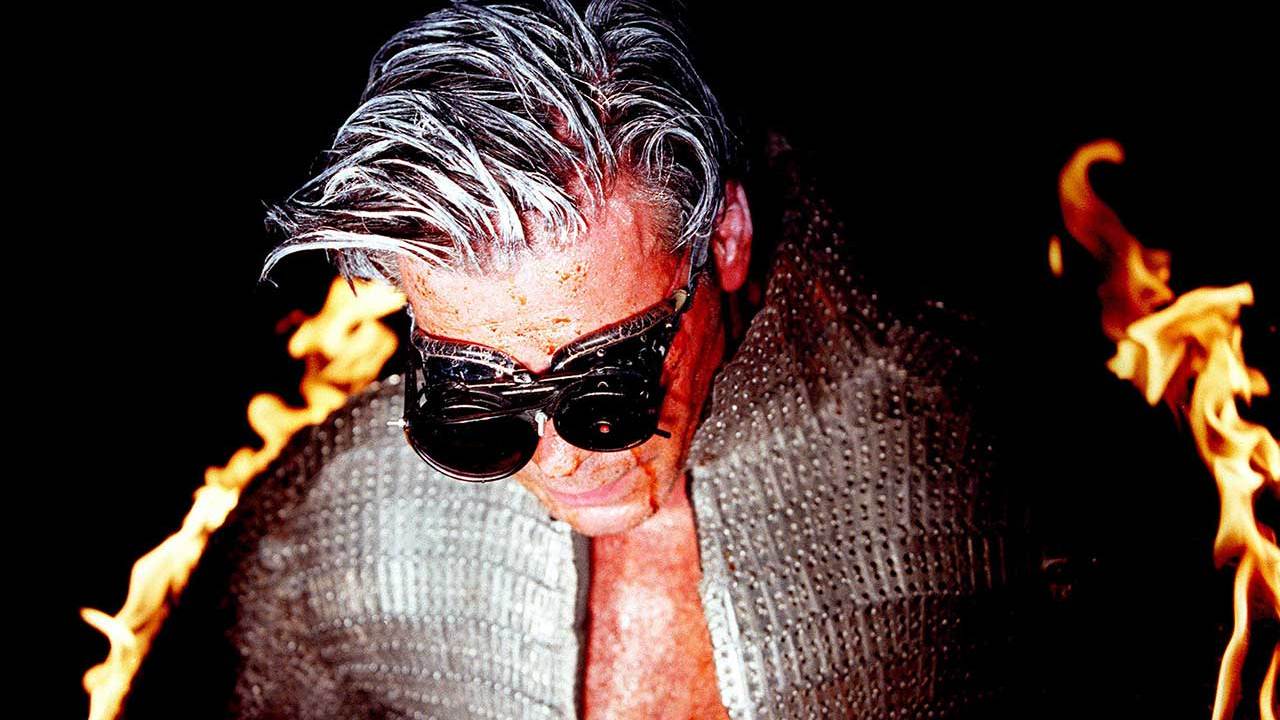How have attitudes changed towards non-English speaking bands?
Further proof that metal fans are open-minded and speaking English isn't always necessary

The world of heavy metal is a beautifully diverse one. Age, gender, race, religion, any sort of cultural or biological indicator goes out of the window the second you put on an album or set foot into your local venue. We’ve seen tremendous evolution in metal over the years with time signatures and tonalities so experimental they’d give MIT’s finest a headache… but it’s all a bit monolingual, isn’t it? But with the recent rise of J-pop/metal phenomenon Babymetal and the international festival circuit welcoming the glorious return of Rammstein, is there a growing level of acceptance towards non-English speaking bands?
Looking at the history of non-English metal, clearly we have to start with the aforementioned German pyromaniacs, Rammstein. Forming in the former East Germany, the band finally began to expand into a culture they previously had relatively little contact with. However, the boys didn’t receive a wholly positive welcome to the new political landscape of the world of the ‘90s; lest we forget, some journalists, particularly in the US and to a lesser but still notable extent in the UK, took a dislike to the boys’ decision to sing in their mother tongue, and coupled with their marching 4⁄4 beats there were many unfounded accusations of nationalistic tendencies. Those who did look down their noses at the Berlin sextet would also try to portray the band as a short lived novelty; something which will sadly be echoed with a later international phenomenon. Luckily after the undeniable success of 1997’s Sehnsucht and followed by the critically acclaimed Mutter in 2001, the common sense of audiences allowed the band to globally express their art in their own language for the first time in our world. Their success opened the door for other bands within their genre and their language to gain more mainstream exposure, the most famous being Laibach.
Looking at differing cultural influences on the other side of the world, Sepultura introduced (admittedly short-lived but nevertheless important) Portuguese lyricism and their ancestral musical stylings on from 1996’s Roots, specifically in Rattamahatta, while Armenian-American heavyweights System Of A Down incorporated Byzantine scales and rhythm into a melting pot already overflowing with cultural and artistic eclecticism. Strangely enough, the aforementioned bands being an exception, non-English speaking and influenced music soon lost its lustre, and as such its support after an initial boom. There were of course a handful of outfits who attempted to expose themselves to bigger audiences after the evolution to a more globalised genre in the mid-late ‘90s, but sadly not to great success. We can look to Icelandic genre spanners Sólstafir, and Sarcófago; the project of original Sepultura frontman Wagner Lamounier, as the most prominent examples. This seems indicative of how the acceptance seemed to decline. Forming in 1995 and 1985 respectively, the two artistic collectives found themselves achieving steadily declining public support until Sarcófago’s break-up in 2000, and Sólstafir’s battle for acclaim and success until 2005’s Masterpiece Of Bitterness.
We have to wonder just why it is that foreign language heavy music began to wane in popularity. It could be attributed to fatigue or perception as a short-lived fad, but perhaps one of the key factors was the rise of later nu-metal bands. Limp Bizkit, Linkin Park et al had, and still have, a distinctly American sound – no other culture can truly claim to having accrued the same level of mainstream success as bands in the genre post-Chocolate Starfish world. It doesn’t seem unreasonable to argue that more overtly American music would obviously reclaim the throne as it’s obviously more palatable to the global population than anything else, regardless of the genre.
But, through the late ‘00s onwards, the world of rock and metal did begin to see the emergence of other native speaking bands, most notably and recently the polarising Babymetal. Upon the viral success of their music video for Gimme Chocolate!!, the Japanese trio were welcomed with some excitement, but a great amount of cynicism being almost immediately written off as a gimmick. Much of the criticism surrounded the blend of music styles and accusations of being an insincere pop outfit. Despite these opinions being mostly found in the most toxic annals of the internet, the obnoxiously loud vocal minority were hard to avoid. Luckily for the J-pop/metal group their peers and growing legion of fans were overwhelmingly supportive: Carcass’ Jeff Walker vehemently argued against the ill-founded cries of the band being a manufactured joke with enough money behind them to break into the genre. Clearly he could see their potential as before even releasing their second album, Metal Resistance, Babymetal were able to sell out Brixton O2 Academy, play a fantastically received set at Sonisphere Festival in 2014 and headline Wembley arena.
Beyond the two arena-sized acts, there other notable contemporary bands performing in their own language, perhaps most famously, Kvelertak. The band have received great levels of support from the media and audiences alike, even supporting the prog-metal titans Mastodon. Their second and third releases, 2013’s Meir and 2016’s Nattesferd have furthered the band’s career are pushing them into bigger venues. The band’s mix of extreme metal and classic rock can be attributed to their less considerable success than other bands outside of the English verse, however it is interesting to note that both Babymetal and Kvelertak, bands at two ends of the spectrum, have received next to no criticism or scepticism surrounding their choice of language. Smaller festivals in Europe have been championing their own home-grown acts, such as The Netherlands’ Terzij De Horde and De Heideroosjes performing at the relatively intimate Roadburn Festival in Tilburg.
Our world has always been based on acceptance, regardless of colour, creed or roots. Typical to the genre’s against-the-grain ethos, metal becomes increasingly liberal in its inclusivity while the world sees the rise of more conservative figureheads. Bands like Kvelertak and modern-day Sólstafir are leading an ever-growing cultural movement in our world 46 years on. This further emphasises metal still has the most forward-thinking ideology there is. So let’s never settle for anything less than revolutionary.
Sign up below to get the latest from Metal Hammer, plus exclusive special offers, direct to your inbox!
Babymetal and Rammstein play the main stage at Download festival on June 10.
